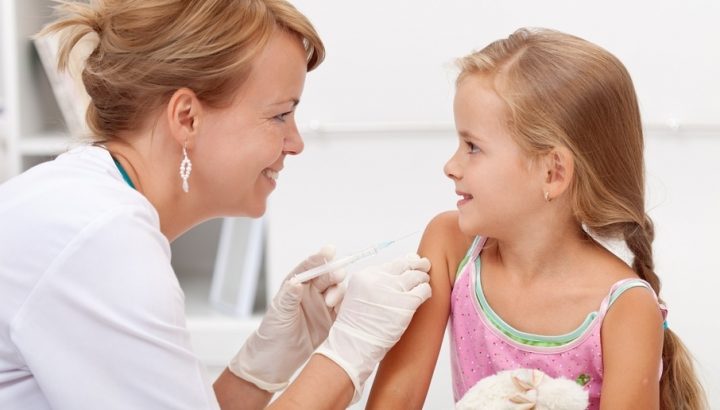The World Health Organisation (WHO) recently reported a sharp increase in the incidence of measles in the WHO European region in the first half of 2018 compared to 2017. This increase also occurred in Ireland.
The ironic thing is that measles is a disease preventable by simple vaccination and the current resurgence of the disease is entirely due to inadequate uptake of vaccination. Paradoxically, the brilliant success of mass vaccination programs over the years in eliminating the scourge of many diseases has bred complacency and foolishness in many people.
Probably the two greatest advances in the history of medicine are vaccination and antibiotics. The human body has a natural defence mechanism against dangerous agents such as viruses and bacteria that invade the body. This defence mechanism is called the immune system. It recognises potentially dangerous foreign agents and prepares antibodies against them that attach themselves to the foreign agents and render them harmless.
Having been successfully activated in this manner, the immune system retains a memory of the infectious agent and the next time it senses this agent it immediately mounts a massive antibody response.
Disease
Sometimes a particularly infectious and fast-acting toxic agent that has not been encountered before can overwhelm the immune system before it can effectively activate itself and disease, e.g. measles, now sets in. Fortunately the immune system can be trained in advance to mount an immediate robust defence against newly encountered toxic agents. This training is called vaccination.
Vaccination involves injecting a harmless version of the toxic agent in question, the ‘flu virus for example, into the patient. This activates the immune system without causing the ‘flu disease, antibodies are raised against the ‘flu virus and memory cells in the immune system remember this particular virus in future. Now when the real active ‘flu virus comes around, the immune system mounts an immediate and massive defense and, in almost all cases, successfully fights off the ‘flu.
Mumps, measles and rubella are highly infectious diseases caused by viruses. These are dangerous diseases – if 1000 people get measles, one or two will die, more than 40 will get pneumonia or bronchitis, more than five will have convulsions and more than one will develop swelling of the brain which may be fatal.
These three diseases are preventable by vaccination with the well-known mumps-measles-rubella (MMR) vaccine which contains attenuated forms of the mumps, measles and rubella viruses. The MMR vaccine is given to babies at 12 months of age and a second dose at four-five years of age. The two doses are necessary to give the best protection.
When the measles vaccine was introduced in Ireland in 1985 it reduced the incidence of measles from 10,000 cases in that year to 201 cases in 1987. However, measles is highly infectious and the number of cases increases rapidly if the uptake of MMR by children declines significantly. And this is what is happening now.
Over 41,000 cases of measles were reported in the EU in the six months to June 2018 – about twice the number for the whole of 2017 – and 37 people died. In Ireland in 2018, 76 cases of measles were recorded up through August 2018 compared to one case for the same period in 2017. Low MMR vaccination rates are to blame.
MMR vaccination has never recovered fully from the scare it suffered in 1998 when Dr Andrew Wakefield published a paper in The Lancet suggesting that the vaccine can cause autism in children. Although this paper was later retracted by the journal and Wakefield was struck off the medical register for unethical conduct and it has been comprehensively demonstrated that there is no link between MMR and autism, Wakefield’s claim alarmed, and continues to alarm, some parents, making them reluctant to have their children vaccinated with MMR. This is a classical demonstration of how much easier it is to scare people than to reassure them.
The simple medical truth is that MMR vaccination is safe for most people and it does not induce autism. Of course, if you are already on certain other medications or suffering from certain conditions you should delay vaccination – your GP will advise. Avoiding the MMR puts your child at risk of contracting diseases that can be severely debilitating or even fatal.
WHO recommends 95% coverage of children with MMR at the one-year and the pre-school booster stages to ensure measles outbreaks don’t occur. But, coverage is currently not up to this standard. For example in England 92% of children receive the first MMR vaccine by their second birthday and 88% receive the second vaccine by their fifth birthday.
Irish statistics are similar. We need to do better. Between 10% and 30% of the Irish population are not vaccinated. But it is never too late to catch up. If you have not had your two doses of MMR, go to your GP and get vaccinated.
Vaccination is a victim of its own success. Public vaccination programs have been so successful that we tend to forget what a wonderful boon they have been. Vaccination prevents 2–3 million deaths annually worldwide. Diseases that once ravaged Europe have been eliminated by mass vaccination programs e.g. smallpox, rinderpest and polio.
WHO aims to eliminate measles from Europe by 2020. And current diseases preventable by vaccination include diphtheria, tetanus, whooping cough, polio, measles, mumps, rubella (German measles) and more.
Little measles is evident nowadays because of MMR. Parents tend to forget how severe measles can be when they never see it and feel they can indulge fears about vaccine safety promoted by irresponsible scaremongers. An outbreak of measles quickly changes minds but then it is too late.
Scientific medicine has been spectacularly successful and deserves huge public respect and support. When it declares something is safe it should be believed.
To reject mainline evidence-based medical advice in favour of contrary opinion proposed by mavericks and based on the flimsiest of grounds is literally biting the hand that feeds you.
William Reville is an Emeritus Professor of Biochemistry at UCC.


 William Reville
William Reville
